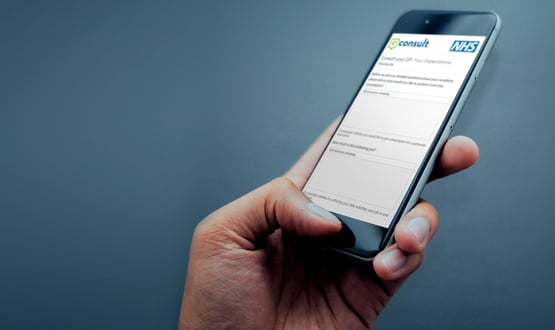The chief executive of eConsult has admitted that online consultations ‘may not be a silver bullet’ after research revealed low patient interaction.
Conducted by the University of Bristol and funded by the NHS’ National Institute for Health Research (NIHR), the study looked at the service which allows patients to submit their symptoms to their GP electronically through the practice website.
The research, which was conducted 18 months ago, looked into website usage data, how patients using the system went on to use other care, patient surveys and practice staff interview data.
It revealed that patient usage of the service was low with an average of two e-consultations a month for every 1,000 patients. Usage was lowest outside standard practice opening hours, especially at weekends with nearly 60% of all e-consultations taking place from Monday to Wednesday, with use declining towards the end of the week.
Only 12% of e-consultations were completed at the weekend.

Murray Ellender, chief executive of eConsult, admitted that while online consultations ‘may not be a silver bullet’, the company has gone on to implement successful changes – including allowing patients to send photos to GPs and enforcing proper training for practices so they can make full use of eConsult in an attempt to boost usage levels.
“Our platform has evolved and it’s better,” Ellender said.
“We have listened to the feedback and made changes so we welcome the research.”
eConsult was originally piloted in 36 GP practices in Bristol, North Somerset and South Gloucestershire but Ellender said that other practices have got on board with the service ‘whole-heatedly’ and there has been positive results since the changes were introduced.
“One practice in York is getting 100 to 150 submissions a day,” Ellender said.
A £45m NHS fund to help GP practices introduce online consultations in their practices was launched in November though they have caused a stir.
In the same month, an emergency motion at the Conference of England Local Medical Committee’s (LMC) in London called for GPs not to introduce online consultations until there was ‘clear evidence’ to suggest they were beneficial to patients.
Doctor Marcus Baw told Digital Health News it was assuring to know that research on the effectiveness of online consultations was being carried out.
“What we would like to see is good quality research showing where and if such schemes can be beneficial, and crucially, an open platform for eConsultation so that we don’t repeat the mistakes of the past by becoming ‘locked in’ to a specific vendor of eConsultation software,” Baw said.


3 December 2017 @ 19:43
People spend significant amounts of time getting to the surgery, waiting in the surgery and returning to their work place, home or wherever – some may not mind that, others will. If a person is working then the “efficiency” factor extends beyond the efficiency of health provision.
The discussion here is surely not about this service is better than that service (we all need to work together) it is about the concept of on line video consultations.
In MPHO I think the bottom line is that this should be down to “patient” choice, and I don’t mean choice to use eConsult, BABYLON blah blah but choice as to utilize on line video consultations or not.
2 December 2017 @ 07:34
Only 12% at weekends – patient isn’t working and can attend surgery.
60% early in the week – patient is at work and attending surgery isn’t easy.
“One practice in York is getting 100 to 150 submissions a day,” – patient is working in Leeds and visiting surgery is difficult (many at NHS Digital or England).
Surely this would have been presumed before the survey took place and would have been validated during the study?
1 December 2017 @ 13:45
Econsult is not as good as Bablyon IMO – plus this research was conducted 18 months ago – an EON in digital terms
2 December 2017 @ 11:36
I would say eConsult from my experience is as good as any automated triage system in the market at present. After all, it picks up red flags and alerts the GP when patients need to be seen…
1 December 2017 @ 12:56
I wasn’t aware anyone thought e-consultations were a ‘silver bullet’!!
The point surely is that they don’t have to be. What they do need to do is offer care in a safe, cost effective way that patients are happy to use.
30 November 2017 @ 17:43
Perhaps the service needs to be end – to – end.
I am confident such a system would bring major benefit.
30 November 2017 @ 14:31
Interesting…
In my own experience the patients who use econsult responsibly like the service very much. However, in my own (admittedly anecdotal) experience since patients game the system so that they can get an emergency appointment to see a doctor. I also had one lady shout at me when we didn’t give her antibiotics, as all we wanted to do was check her hydration status.
I really felt that eConsult was on to something though… Just because a retrospective study shows low engagement doesn’t mean that this will be the case a few years from now as people get more digitally savvy. Also, self help and appropriate use of resources should be encouraged, which eConsult is all about…